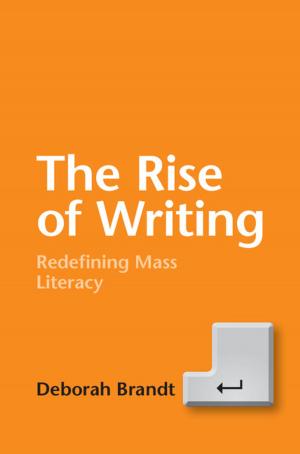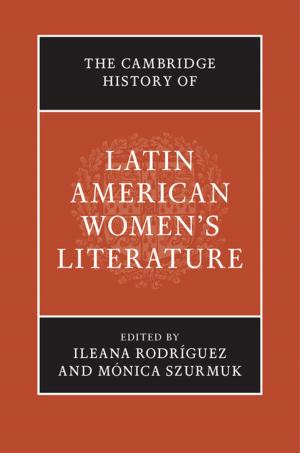Magical Hymns from Roman Egypt
A Study of Greek and Egyptian Traditions of Divinity
Nonfiction, History, Ancient History, Religion & Spirituality| Author: | Ljuba Merlina Bortolani | ISBN: | 9781316673157 |
| Publisher: | Cambridge University Press | Publication: | October 10, 2016 |
| Imprint: | Cambridge University Press | Language: | English |
| Author: | Ljuba Merlina Bortolani |
| ISBN: | 9781316673157 |
| Publisher: | Cambridge University Press |
| Publication: | October 10, 2016 |
| Imprint: | Cambridge University Press |
| Language: | English |
This interdisciplinary study investigates the divine personas in the so-called magical hymns of the Greek magical papyri which, in a corpus usually seen as a significant expression of religious syncretism with strong Egyptian influence, were long considered to be the 'most authentically Greek' contribution. Fifteen hymns receive a line-by-line commentary focusing on religious concepts, ritual practice, language and style. The overarching aim is to categorise the nature of divinity according to its Greek or Egyptian elements, examining earlier Greek and Egyptian sources and religious-magical traditions in order to find textual or conceptual parallels. Are the gods of the magical hymns Greek or Egyptian in nature? Did the magical hymns originate in a Greek or Egyptian cultural background? The book tries to answer these questions and to shed light on the religious plurality and/or fusion of the two cultures in the treatment of divinity in the Greek magical papyri.
This interdisciplinary study investigates the divine personas in the so-called magical hymns of the Greek magical papyri which, in a corpus usually seen as a significant expression of religious syncretism with strong Egyptian influence, were long considered to be the 'most authentically Greek' contribution. Fifteen hymns receive a line-by-line commentary focusing on religious concepts, ritual practice, language and style. The overarching aim is to categorise the nature of divinity according to its Greek or Egyptian elements, examining earlier Greek and Egyptian sources and religious-magical traditions in order to find textual or conceptual parallels. Are the gods of the magical hymns Greek or Egyptian in nature? Did the magical hymns originate in a Greek or Egyptian cultural background? The book tries to answer these questions and to shed light on the religious plurality and/or fusion of the two cultures in the treatment of divinity in the Greek magical papyri.















